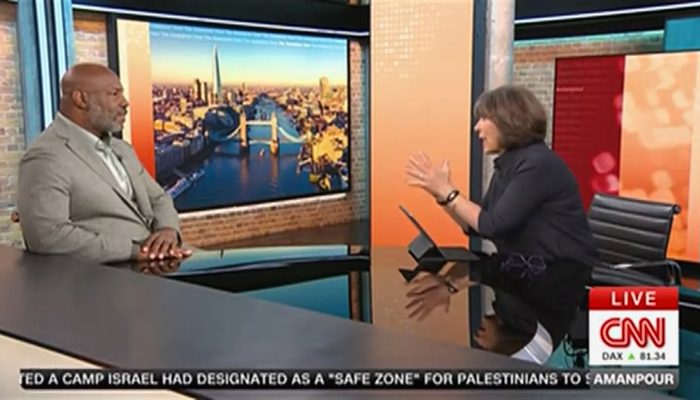On Monday, the chat-show Amanpour & Co., aired a conversation between host Christiane Amanpour and Jelani Cobb, dean of Columbia Journalism School. They debated the ‘danger’ of another Trump administration, harking back to the age of McCarthyism for dramatic effect. But is this just another hyperbolic cry from mainstream media?
Though they danced around mentioning Trump by name, it’s no secret that Amanpour and Cobb harbor feelings of doom and gloom towards the former president. How do we know? Just last year, Amanpour won a Columbia journalism award that Cobb presented, rousing the crowd with a charged liberal speech against Trump.
Despite Cobb stating that journalists aren’t there to tell people who to vote for, he also suggested that they have a heady task of outlining the ‘serious’ dangers Trump allegedly brings with him, as if hinting at who not to vote for isn’t a little too on the nose.
Cobb’s point was so vague, even Amanpour needed clarification. She asked if media should treat Trump like McCarthy, providing the audience with more clarity than Cobb intended.
Now, let’s shift gears. The recent campus protests at Columbia are worth discussing, and Cobb had his bit to say. He admitted there were dangerous individuals on campus during the protests, but he explicitly pointed towards far-right groups, such as the Proud Boys, as the only real threat. What about violent protestors causing havoc on campus, the ones who occupied buildings and threatened people’s lives? No comment from Mr. Cobb.
Amanpour chimed in with another distortion. She called pro-Hamas groups at Columbia, noted for harassing Jews and siding with terrorists, as “pro-peace”. Sounds quite peaceful, doesn’t it?
So, what’s going on here? We’ve got a CNN International interviewer and a Columbia Journalism dean painting a one-sided picture of contention and danger, where the narrative conveniently pushes a specific political warning. They parrot those in media who’ve already invested in Trump as a harbinger of destruction and quietly ignore those on their side issuing threats.
In conclusion, every story, no matter how biased, serves a purpose: to inform, to entertain, or to influence. Media personalities must remember that there’s a fine line between objectivity and bias. As Winston Churchill pointedly said, “A lie gets halfway around the world before the truth has a chance to get its pants on.” We need less sugar-coating and more straight-talking.



